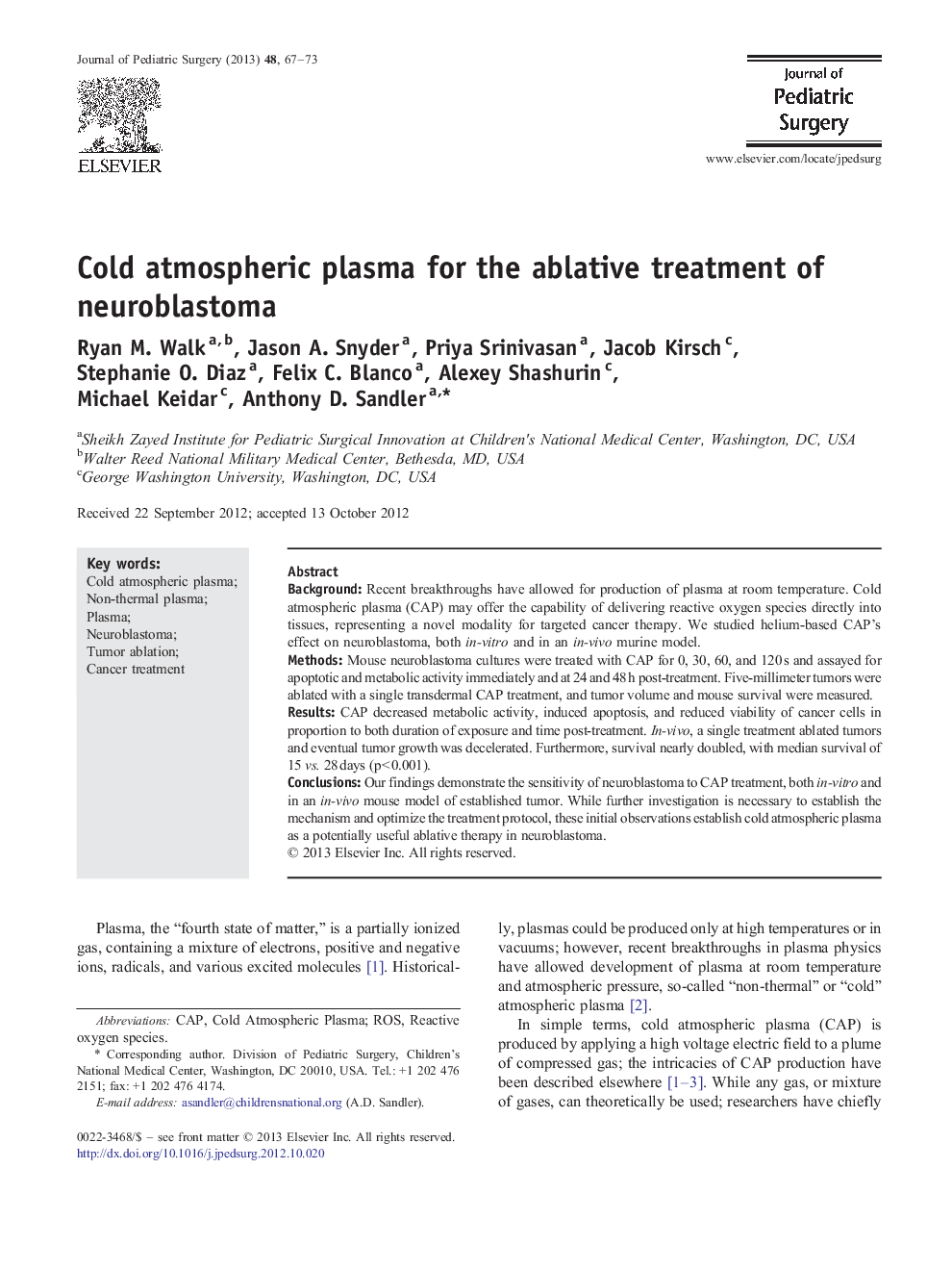| Article ID | Journal | Published Year | Pages | File Type |
|---|---|---|---|---|
| 4156317 | Journal of Pediatric Surgery | 2013 | 7 Pages |
BackgroundRecent breakthroughs have allowed for production of plasma at room temperature. Cold atmospheric plasma (CAP) may offer the capability of delivering reactive oxygen species directly into tissues, representing a novel modality for targeted cancer therapy. We studied helium-based CAP's effect on neuroblastoma, both in-vitro and in an in-vivo murine model.MethodsMouse neuroblastoma cultures were treated with CAP for 0, 30, 60, and 120 s and assayed for apoptotic and metabolic activity immediately and at 24 and 48 h post-treatment. Five-millimeter tumors were ablated with a single transdermal CAP treatment, and tumor volume and mouse survival were measured.ResultsCAP decreased metabolic activity, induced apoptosis, and reduced viability of cancer cells in proportion to both duration of exposure and time post-treatment. In-vivo, a single treatment ablated tumors and eventual tumor growth was decelerated. Furthermore, survival nearly doubled, with median survival of 15 vs. 28 days (p < 0.001).ConclusionsOur findings demonstrate the sensitivity of neuroblastoma to CAP treatment, both in-vitro and in an in-vivo mouse model of established tumor. While further investigation is necessary to establish the mechanism and optimize the treatment protocol, these initial observations establish cold atmospheric plasma as a potentially useful ablative therapy in neuroblastoma.
